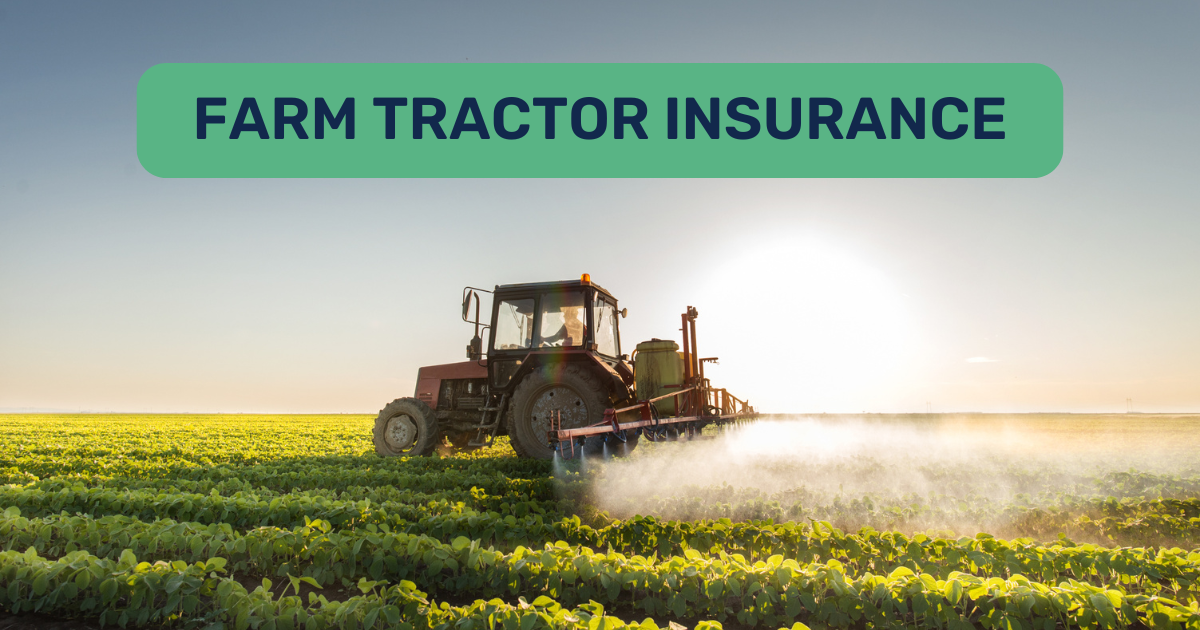
Farm Tractor Insurance
Updated: January 9, 2026
Share:
At the center of any grain farming operation, your tractors are more than just a piece of equipment. It’s the heart of your business. With the high cost of modern machinery and the potential for a wide range of on- and off-road risks, relying on a standard farm or homeowners policy can leave you dangerously exposed.
Specialized farm tractor insurance is a critical component of a comprehensive risk management strategy. This guide from Hitchings Insurance will walk you through the essential coverages, common cost factors, and proactive strategies you can use to protect your tractor, your livelihood, and your peace of mind.
Why Your Tractor Needs Specialized Insurance
The average farm tractor today is a massive investment, often exceeding the value of a house. But unlike a car, a tractor’s risks aren’t confined to public roads. Your tractor is vulnerable to a range of hazards, both on your property and when it’s in transit.
- Physical Damage: A tractor can be damaged by fire, theft, vandalism, or natural disasters like a windstorm. It can also be destroyed in a field rollover, a collision with another piece of equipment, or by accidentally ingesting a foreign object during harvest.
- Liability: If your tractor causes an accident on a public road or injures a visitor on your property, you could be held liable for property damage or medical expenses. This is a significant risk, as a large piece of equipment can cause catastrophic damage.
- Special Form: Coverage against an entire list of unknowns. Examples include wiring harnesses getting chewed by mice, a hibernating raccoon getting run through the belt drive of a combine, or even mysterious glass breakage in a machine’s cab can fall against the special machinery coverage form.
- Theft: High-value farm equipment, especially with expensive precision agriculture technology, is a prime target for thieves.
Key Coverages for Farm Tractor Insurance
A specialized farm tractor insurance policy is designed to cover these unique risks and can be tailored to your specific needs. It’s often included as part of a broader farm insurance package.
- Collision and Comprehensive Coverage: This is your primary protection against physical damage to the tractor itself.
- Collision: Covers damage to your tractor from a collision with another vehicle or object.
- Comprehensive: Covers damage from non-collision incidents such as fire, theft, vandalism, or damage from severe weather like a tornado or hail storm.
- Farm Liability: This coverage protects your business from liability claims of bodily injury or property damage to third parties. If your tractor injures a visitor or even a trespasser this coverage would respond. Any collision caused with your tractor would have farm liability extended if properly endorsed on the farm insurance policy.
- Inland Marine Insurance: This policy, sometimes called an equipment floater, provides protection for your farm equipment while it is in transit or temporarily at a location other than your primary farm premises.
- Actual Cash Value (ACV) vs. Replacement Cost (RC): When insuring your tractor, you will need to choose how the insurer will pay out a claim. ACV pays out the depreciated value of the tractor, while RC pays out the cost of a brand new one of similar kind and quality. RC is generally unavailable for farm machinery coverage. ACV in simple terms is the market value of the equipment that is damaged. Look at 10 dealer examples of similar equipment in your geographic area and average the cost of them to replace your machine. This is a baseline of how they will be valued during a claim.
- Rental Reimbursement Machinery: If you lose a tractor to a fire or other coverage claim, you will likely be in the course of using the tractor on the farm. As a result, you will need to rent a replacement while you get your tractor fixed. Having rental coverage on your farm plan is relatively inexpensive. If you go without coverage, it could cost thousands of dollars if you have an extended repair timeline.
Proactive Risk Mitigation Strategies
Beyond a great insurance policy, proactive safety and operational practices are your best defense against a costly claim. Implementing these strategies can not only reduce your risk but also help lower your premiums.
- Rigorous Maintenance: Regularly service and inspect all your farm equipment. Well-maintained machinery is less likely to break down unexpectedly, causing a claim or an injury.
- Operator Training: Ensure that anyone who operates your tractor is properly trained and understands all safety protocols.
- Enhanced Security: Store your tractor in a secure, locked barn or shed. This deters theft and protects it from vandalism and weather damage. Consider using GPS trackers on your most valuable equipment to aid in recovery in case of theft.
- Field and Road Safety: Be aware of your surroundings, both in the field and on public roads. Use proper lighting, signage, and safety flags when operating on public roads, and always adhere to “slow-moving vehicle” laws.
- Documentation: Keep detailed records of your tractor’s make, model, year, and any major repairs. In the event of a claim, this documentation can be invaluable for a faster, more accurate payout.
Conclusion: Your Partner in Protection
Your farm tractor is a vital part of your livelihood. Don’t leave it exposed to a risk that could cripple your operation. By securing specialized farm tractor insurance and implementing sound risk mitigation strategies, you can protect your valuable assets and the future of your farm.
Ready to find the right coverage for your farm tractor? Contact Hitchings Insurance in Ohio today for a no-obligation consultation. We’ll help you build a comprehensive plan that keeps you running smoothly.

